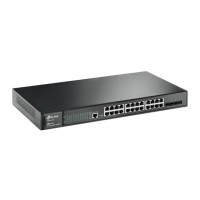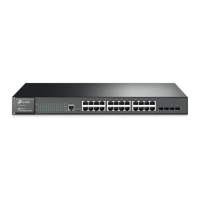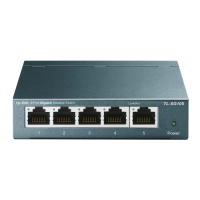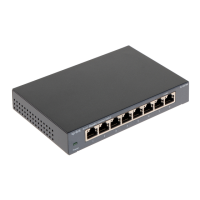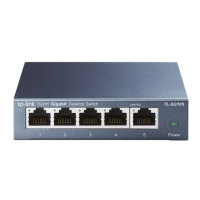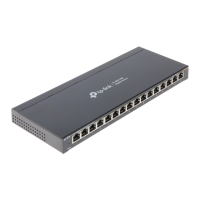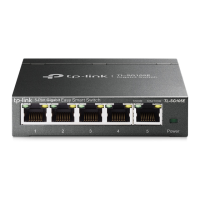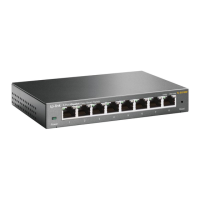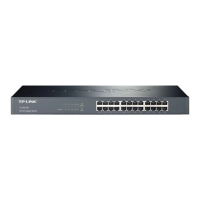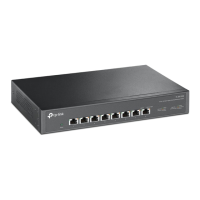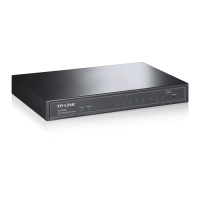244
Note:
For detailed introduction of TLV, please refer to IEEE 802.1AB standard.
In TP-LINK switch, the following LLDP optional TLVs are supported.
Port Description TLV
The Port Description TLV allows network management to
advertise the IEEE 802 LAN station's port description.
System Capabilities TLV The System Capabilities TLV identifies the primary functions of
the system and whether or not these primary functions are
enabled.
System Description TLV The System Description TLV allows netw
advertise the system's description, which should include the full
name and version identification of the system's hardware type,
software operating system, and networking software.
System Name TLV The System Name TLV allows network manag
ement to
advertise the system's assigned name, which should be the
system's fully qualified domain name.
TLV
The Management Address TLV identifies an address
associated with the local LLDP agent that may be used to reach
higher entities to assist discovery by network management.
Port VLAN ID TLV
The Port VLAN ID TLV allows a VLAN bridge port to advertise
the port's VLAN identifier (PVID) that will be associated with
untagged or priority tagged frames.
Port And Protocol VLAN
The
Port And Protocol VLAN ID TLV allows a bridge port to
advertise a port and protocol VLAN ID.
VLAN Name TLV The VLAN Name TLV allows an IEEE 802.1Q-
802 LAN station to advertise the assigned name of any VLAN
with which it is configured.
Link Aggregation TLV The Link Aggregation TLV indicates whether the link is capable
of being aggregated, whether the link is currently in an
aggregation, and if in an aggregation, the port identification of
MAC/PHY
TLV
The MAC/PHY Configuration/Status TLV identifies: a)The duplex
and bit-
rate capability of the sending IEEE 802.3 LAN node that
is connected to the physical medium; b)The current duplex and
bit-
rate settings of the sending IEEE 802.3 LAN node;
c)Whether these settings are the result of auto-negotiation
during link initiation or of manual set override action.
Max Frame Size TLV
The Maximum Frame Size TLV indicates the maximum frame
size capability of the implemented MAC and PHY.
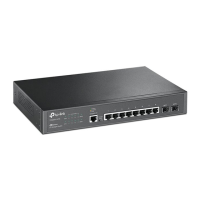
